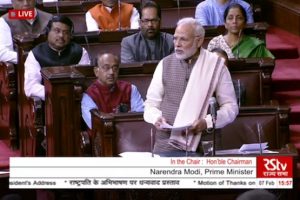India’s pro-Hindu government has presented detailed statistics in parliament showing a surge in religion-based violence since it came to power four years ago.
The data reveals the veracity of reports provided by human rights agencies for the duration of the Narendra Modi regime.
In 2017, 111 persons were killed and at least 2,384 injured in 822 cases of sectarian violence, the highest figue in the past three years.
In 2016, 86 persons were killed and 2,321 injured in 703 incidents of religion-based violence.
Uttar Pradesh India’s most populous state registered the largest number of incidents, a state which has 200 million people, some 40 million of them Muslims.
The state, where the pro-Hindu Bharatiya Janata Party (BJP) swept to power in last year’s provincial elections, witnessed 195 incidents of religion-based violence in 2017, claiming 44 lives and injuring 452 people.
Rights groups and civil society have been accusing the BJP, which leads the federal coalition government, of fanning the flames of intolerance. They also allege the administration is supportive of Hindu groups’ violence against religious minorities like Muslims and Christians in its desire to make India a Hindu-only state.
Some BJP leaders’ active promotion of Hindu nationalism resulted in the spike in communal violence in India since it came to power in 2014, says a report by the Mumbai-based Center for Study of Society and Secularism.
The failure by authorities to investigate or prevent such attacks, often led by extremist groups acting as vigilantes for cow protection and moral policing, have “created a climate of impunity” and might lead to continued attacks, says the report.
Wilson Chowdhry, Chairman of the British Pakistani Christian Association, said:
“Since the Narendra Modi regime has been in power, India’s human rights record for minorities has declined sharply. The country is now just outside the top ten worst countries for Christian persecution on the Open Doors World Watchlist.
“Until this recent report Nationalist MP’s have refuted the evidence submitted by human rights groups detailing a clear rise in sectarianism, coupled with the silence of other more liberal MP’s the situation has been allowed to exacerbate.
“Failure to respond to the issue has blemished the reputation of India across the world, but few if any politicians have seemed to care about this. My assumption is that international political duress has played a part in the recent acceptance of this latest damning report.
“Acceptance of the data does nothing to improve the situation.The true barometer of success will however be introduction of new policies, laws and practices that safeguard the increasingly suffering minorities in India.”
A video clip that went viral on Feb. 7 shows a young man slapping a middle-aged Muslim man more than 25 times, asking him to say “Jai Shri Ram” (hail
lord Ram). Media reports said police have arrested 18-year-old Vijay Meena.
BJP parliamentarian Vinay Katiyar told reporters in New Delhi on 7th February 2017, that Muslims have no business being in India and should go to Pakistan
or Bangladesh. He also blamed Muslims for partition of the subcontinent in 1947.
Pew Research Center, a U.S.-based think tank, in its 2017 analysis ranked India as among the worst in the world for religious intolerance. The nation of 1.3 billion trailed only behind Syria, Nigeria and Iraq.
Hindus form 80 percent of India’s population or some 966 million. The 172 million Muslims and 28 million Christians are the two main religious minorities, followed by Sikhs, Buddhists, Zoroastrians (Parsis) and Jains.


